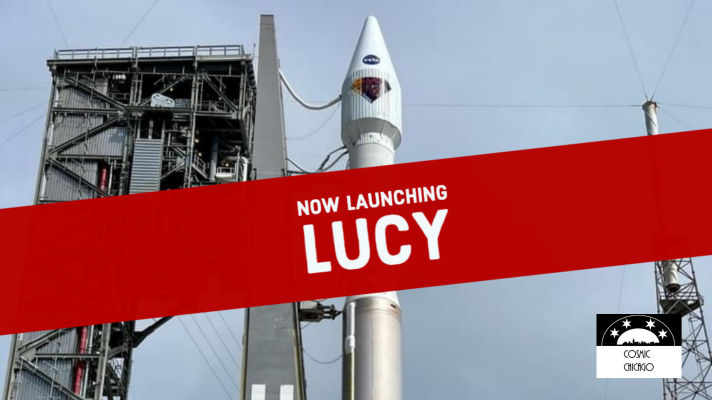NASA is ready to launch a 12 year mission to the Jupiter Trojan asteroids in order to learn more about the formation of our Solar System. The Lucy spacecraft is set to launch on a ULA Atlas V rocket from Cape Canaveral Space Force Station in Florida on October 16th, 2021 at 4:34 a.m. CDT.
NASA will provide coverage of the launch beginning at 4 a.m. CDT on NASA TV, Live on NASA.gov, and on YouTube.
This twelve year mission to the Trojan asteroids involves a lot of firsts and records for both NASA and space exploration. Lucy will be the first space mission to the Trojan asteroids, the first time a spacecraft will return to Earth’s vicinity after traveling to the outer Solar System, will travel farther than any other solar powered spacecraft has gone from the Sun, and will visit more objects in independent orbits than any other mission.
The asteroids Lucy will explore are in orbit with the planet Jupiter, orbiting in clusters that both follow and lead the planet as it orbits around the Sun. The Trojan asteroids are considered to be a diverse representation of bodies that contain insight into the formation of our Solar System and planet Earth.

To carry out the mission, Lucy will complete three gravity assists that bring the spacecraft back into the Earth’s vicinity after it has traveled far out into the Solar System. Doing this will allow it to not only travel to the Trojan asteroids, but to explore an asteroid in the Main Asteroid Belt.
A suite of instruments and two giant solar arrays will allow the spacecraft to travel as far and long as necessary, and to perform the science objectives set for the mission. Lucy’s key science objectives include studying the surface geology of the asteroids, mapping the color and composition of each target, investigations into the interior and sub-surface of each asteroid, and searching for any possible rings or satellites.

The final gravity assist is set for 2030 which will make it possible for Lucy to complete a fly by of an asteroid named Patroclus, the mission’s final target. However, the Lucy spacecraft will remain in orbit and able to revisit the Trojan asteroids for years to come.
This article was previously published by Sophie Sanchez on ChicagoNow.

